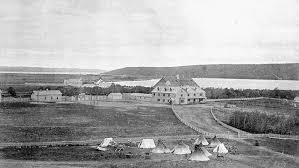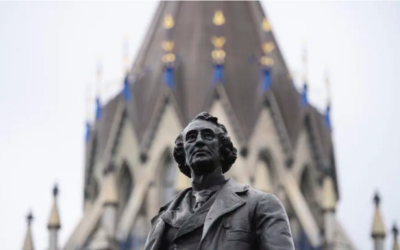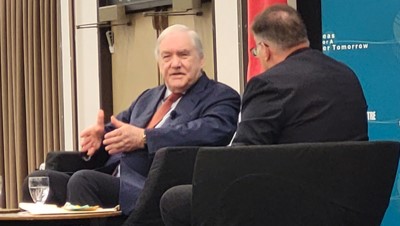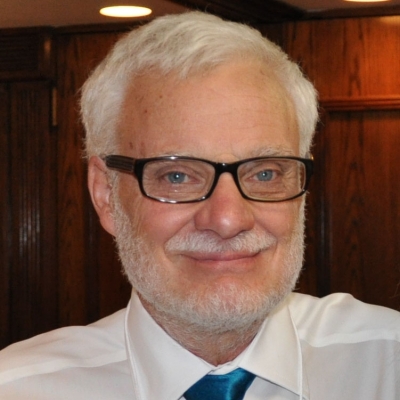Yes. But there was nothing sinister or evil about any of the deaths. They were simply a fact of life at a time when death from disease was a sad, but common occurrence. Children who attended day schools, or no school at all, died in even greater numbers on their home...
Results for "Reconciliation"
Macdonald’s Legacy (Part 1): Reclaiming a Foundational Leader
Part 1 of a 5 part series
Western Standard: Candid Conrad Black Charms Winnipeg
Three hundred people filled the RBC Convention Centre in Winnipeg to hear Lord Conrad Black speak his mind. Black told the Winnipeg crowd his parents lived in Winnipeg until the second World War and he still has first cousins living there. “I know it’s not my city,...
Debate Needed on Claim Children were Buried at Residential Schools
Only when the truth is known can an honourable reconciliation be forged On Jan. 31, Dr. Michael Mahon, president of the University of Lethbridge, cancelled a talk that Dr. Frances Widdowson was scheduled to present. Like all scholars, Dr. Widdowson has nuanced views...
Featured News
Supply Chain Strains Could Cause Shortages and Hoarding
Supply chain problems, both international and domestic, could create shortages and hoarding, and make recent inflationary pressures even worse. Although problems with our ports and railways may beg policy solutions, the short-term response of everyday Canadians should...
New Book: Patients at Risk: Exposing Canada’s Health-care Crisis
CALGARY, AB, December 17, 2021 - The Frontier Centre for Public Policy has just released a new book, Patients at Risk: Exposing Canada’s Health-care Crisis written by Susan Martinuk. Susan is an accomplished, nationally recognized researcher and writer who has...
Our People
Staff | Senior Fellows | Research Fellows | Research Associates | Expert Advisory Panel | Board of DirectorsStaffPeter Holle is the founding President of the Frontier Centre for Public Policy, an award-winning western Canadian-based public policy think tank. Since its...
How Notley Can Avoid Becoming a One Term Wonder
It was a great night for Rachel Notley and the Alberta NDP. The Alberta Liberals collapsed, giving the NDP free run on the left. Having won 53 of 87 seats, the NDP can govern for four years with a comfortable majority. But Ms. Notley should be realistic about her new...
First Nations Want to Be Economic Players, Not Wards: Partnerships may be key to self-sufficiency
A potential offer from a First Nation group to purchase a potash corporation could signify a new trend among First Nations of entering the economy.
Residential Schools Generate Anger But Also Pride
There are fundamental questions which have never been answered by those who condemn the residential school system. Were we to leave people by virtue of no common language, illiterate, innumerate and unable to deal with the larger society?
It’s Time To Focus On Healing
I refer to your column in the Winnipeg Free Press on July 9th, “It’s time to focus on healing”, where you appear to encourage moving on in the Residential Schools issue. Over the years I have spoken to a considerable number of former staff members, teachers and students from the Indian Residential Schools and I can assure you, from my perspective, the Truth and Reconciliation Commission will discover very little of the truth they are seeking and there will never be a true and full reconciliation. More — email from Bill Steele, Winnipeg
It’s Time To Focus On Healing: Residential school stories lack balance
A recent event in Winnipeg organized by the Truth and Reconciliation Commission highlights the need to focus on healing from residential schools, as well as present a more balanced perspective on these institutions, which were not all negative.
Banishment Practice Needs To Be Controlled: New First Nation law presents due process concerns
A new law introduced by a Manitoba First Nation community allowing banishment for criminal reasons needs to be tightly controlled and must never become politicized by the sitting band government.
A Policy That Is Outdated, Expensive And Unworkable
Every Canadian federal government has faced this question since the first one took office in 1867, taking over a patchwork of reserves and treaties negotiated under British rule. In the absence of a convincing answer that satisfied both governments and governed, Canada has opted for incremental change. The result is a system that is increasingly outdated, expensive and unworkable (a fate Canada shares with other postcolonial societies like Australia).
Residential Schools: Another View
Most children who went to residential school learned to read, write and calculate. Many children also learned other modern skills — the principles of democracy and common law, for example — which would help them participate more fully in both aboriginal and Canadian society. Given this context, were aboriginal residential schools the unmitigated disasters that the Truth and Reconciliation Commission will, without a doubt, hear them described as? Probably not.



